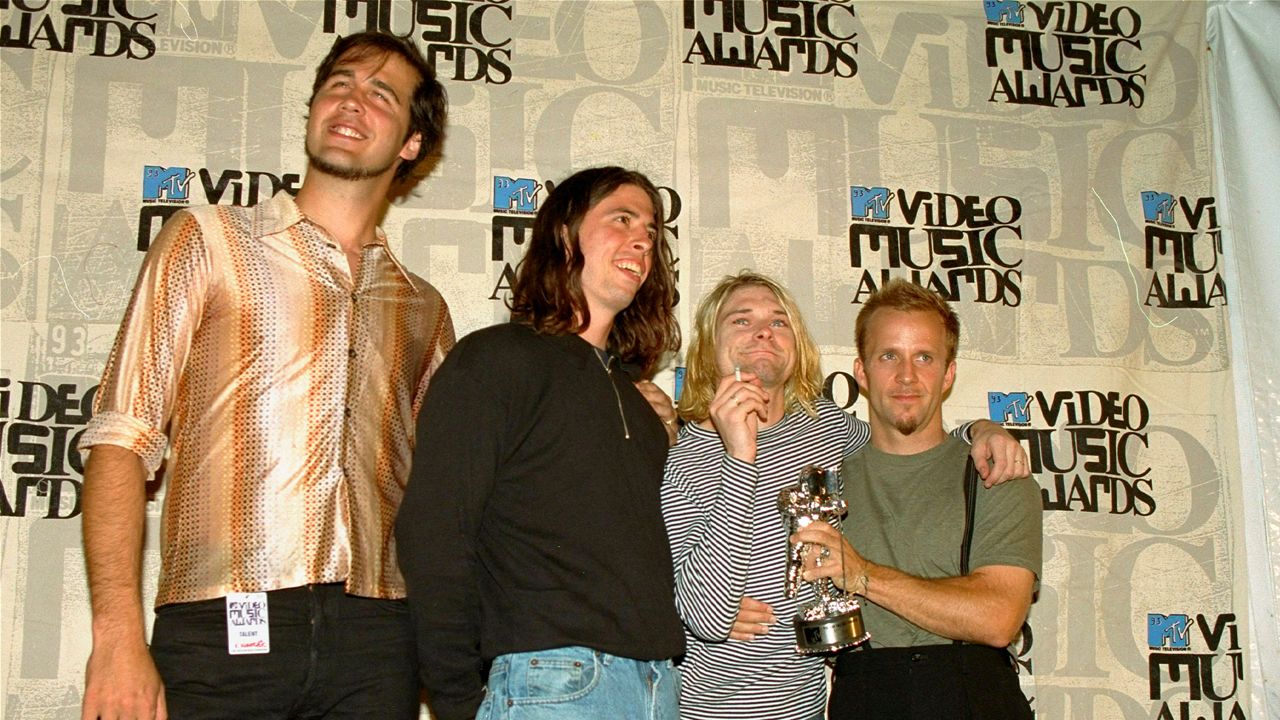LOS ANGELES — A federal appeals court Thursday revived a previously dismissed lawsuit for alleged child sexual exploitation brought by a Los Angeles man pictured as a naked infant over 30 years ago on the cover of the groundbreaking Nirvana album “Nevermind.”
Spencer Elden’s lawsuit against the grunge rock group alleges that he has suffered “permanent harm” as the band and others profited from the image of him underwater in a swimming pool, appearing to grab for a dollar bill on a fish hook.
The suit says the image violated federal laws on child sexual abuse material, although no criminal charges were ever sought.
A federal judge in California threw out the lawsuit last year but allowed Elden to file a revised version, which the judge later dismissed on grounds that it was outside the 10-year statute of limitations of one of the laws used as a cause of action.
Thursday’s decision by a three-judge panel of the Ninth U.S. Circuit Court of Appeals in California reversed that ruling and sent the case back to the lower court.
The appellate panel found that each republication of an image “may constitute a new personal injury” with a new deadline and cited the image’s appearance on a 30th anniversary reissue of “Nevermind” in 2021.
“The question whether the ‘Nevermind’ album cover meets the definition of child pornography is not at issue in this appeal,” the court wrote, according to the New York Times.
In an email to The Associated Press, Nirvana attorney Bert Deixler called the ruling a “procedural setback.”
“We will defend this meritless case with vigor and expect to prevail,” he wrote.
The Associated Press does not typically name people who say they have been victims of sexual abuse unless they come forward publicly, as Elden has.



